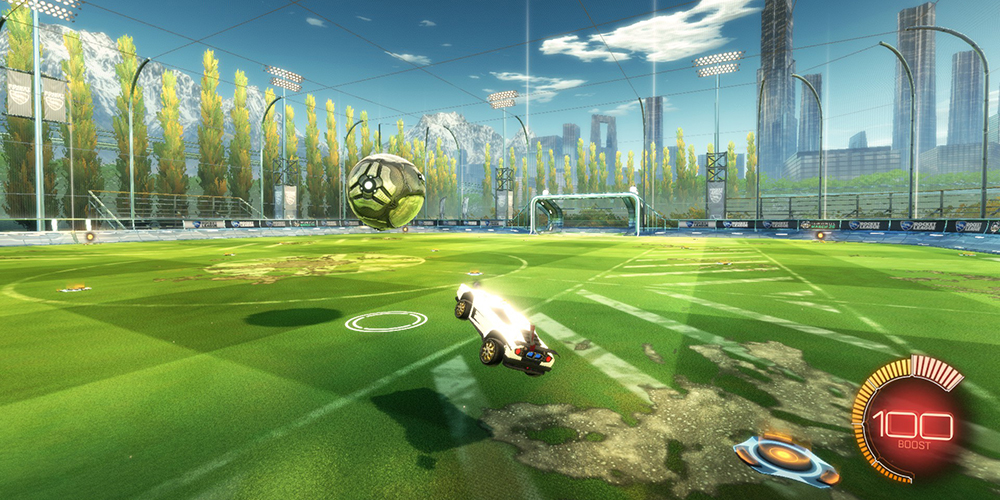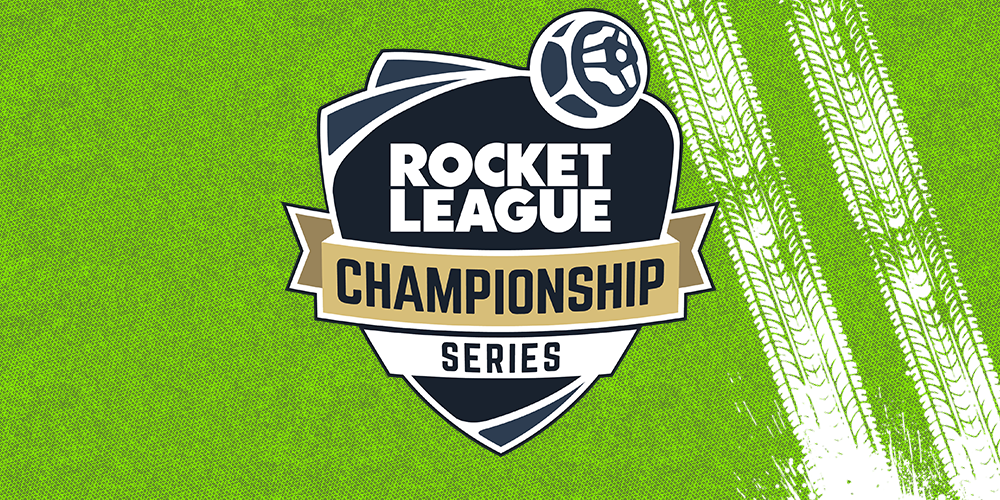When I found out that Rocket League was going to be allowing cross-play between Xbox One, the Playstation 4 and PC, I initially just chalked it up to the game being relatively good at it already and adding one more platform to its portfolio.
However, the more I thought about it, the game has evolved from simply being rocket car soccer — a novelty — and is growing to have the potential to be something almost mythical. With its combination of approachability, ease of viewing and competitive depth, Rocket League could be the grand esport unifier that people (and investors) are looking for.
Context is king
One of the reasons I’ve been a big fan of Super Smash Bros. Melee as an esport is something I call the “unification context theory” or UCT.
Within the UCT, an esport’s success is based on its ability to reach a mass audience and have that group of people understand the context of why what they are watching is special. The easier they can understand this context, the better.
With Smash Bros. Melee, the game had such a proliferation in high school/post-secondary campuses in North America that there is an in-built audience, regardless of whether people still play. I believe that because people have likely played the game or seen it played (this is not mentioning the original Super Smash Bros or Brawl for the earlier/later generation), they can understand what pros do as “good” a lot faster.
In short, if you’ve played Fox in Melee, you know how fast you can make him move. When you see mang0 play Fox in a Melee tournament, you understand it as special because you have the context of your own play.
This still applies to larger games like League of Legends and Dota 2, but the success of the UCT is based off of the proportion of audience playing those games. An audience that isn’t as “deep” into gaming either hasn’t played those titles, or spent enough time with them to appreciate things like animation cancelling, target priority or skill builds. This is a common reason as to why newcomers will say “it looks cool, but I have no idea what’s going on” when watching The International or the LCS.
But because they’ve likely came across a Smash Bros. title, and Smash is relatively straightforward, they’re more likely to “get” it. People “getting it” means more viewers. People “getting it” means more growth. People “getting it” means more money.
This falls in line with a general theory of success on Twitch, which is a streamer being:
- Good at a game
- Entertaining to watch
One is good, but both is great. Smash Bros Melee has both.
Rocket League definitely has both

If I’ve ever played Rocket League (which I have), I can look at a professional or high level game and understand instantly why those people are better than me. Their movement is better. They manage boost for specific situations and aerials. They predict the game’s physics in a way that makes their cars and shots more precise.
I can understand this because Rocket League is a cheap, easy-to-access game that I can convince my friends to play, no matter what system we’re using. There’s no hour-ish time investment like LoL or Dota 2; I can literally grab four or five games at least in the same period.
Rocket League games don’t matter in the sense that I feel inclined to intensely practice my mechanics. Sure, I could definitely improve, but I get the same amount of awesome moments regardless; every goal I score or shot I save is a great experience for me, and being able to have friends see that just adds to it.
When the game adds cross-platform support that feels seamless and natural, it reinforces the player base and doesn’t lead to the age-old problem of all of your friends being on Xbox One and you cursing your choice to buy a Playstation 4, or no console at all. There’s no co-ordination needed — you aren’t planning your purchase ahead of time and getting punished if you’re late to the party.
Rocket League is the Nintendo Wii or Gamecube that sits in the entertainment center at your friend’s house; sure, there might be days where she sits and fiends at tech skill in Melee after watching a tournament, but sometimes all you want to do is load up Dreamland 64 for some doubles, drinks and (hopefully) a CRT. There is no pretense there.
In Rocket League, your way-too-good friend (hopefully) isn’t going to yell at you for missing a save, because in the grand scheme of things, you aren’t wasting that much of their time. You aren’t getting caught out for a dumb mistake after an hour-long, tense match of Dota. You aren’t feeding relentlessly in League. You’re just just bumping the ball around, and even at its worst, it’ll only last five more minutes at maximum; between then and now, you can see how many people you can blow up.
Premiere league status

All this works in Rocket League‘s favor in addition to it being a non-offensive, aesthetically mainstream title that no one is going to be embarrassed to show to their parents, spouse, friends or classmates. It can be explained in three words (“rocket car soccer”) that instantly sets the premise. Its rules and mechanics that carry over from traditional sports, and it punctuates all this with bright, friendly colors and explosions.
Enthusiasm for Rocket League isn’t forced, paid-for or shoved in your face: it is simply a perfect formula for genuine fun. It has spawned a grassroots community through having strong fundamental principles for success, and its developer has paid that enthusiasm back by making logical, palatable decisions when it comes to new, non-essential content and how it’s priced.
This. I don’t even know where to start with this. This prompted me to quote-tweet “Mother of god.” Such a simple switch in sports and concept, but suddenly the game is fresh.
Its developer made something genuinely good, enough people went “hey, this is actually really fun!” to encourage their friends to join in, and the developers responded by not trying to wring every last cent from their new-found push.
I’d say that’s a win.
Going pro

While no game is universally liked, Rocket League is pretty close. While League of Legends and Dota 2 is constantly going to be at odds with each other, Rocket League isn’t going to have to choose a side; it can claim fans from both camps and let them share their contexts (shoutouts to UCT again).
Along with all the other things that enable the game to be shared and understood, this mean that the Rocket League Championship Series has a good chance of success. Despite me generally singing its praises in this article, though, there’s a couple things I can think of being a problem:
- It needs to convince its fans that there are narratives and storylines to its players and teams. This, thankfully, can be done through using storytelling methods present in traditional sports.
- It needs to find a way to rope in “kickaround” players like me and my friends; not everyone who plays pickup basketball in a gym likes the NBA, or cares about pro ball. This can be solved by making marketing stars out of its players, or providing tangible benefits like in-game item drops for viewers.
- It needs to find a way to have long-lasting (say, years) appeal through new content that doesn’t overcomplicate its premise. It’s a catch-22 that will need to be solved: you can’t add new maps or techniques without adding more things to learn, and eventually that can cross the line into being too much.
To summarize, Rocket League is:
- Easy to access in price and platform
- Requires little investment in money, hardware and time
- Has highlight-worthy moments that are easily replicatable and shareable
As an esport, Rocket League is:
- Easy to contextualize for the layman viewer due to similar premise to real-world football
- Socially acceptable aesthetic (no blood, gore, violence, swearing, grimdark setting)
- Easy to contextualize with your own play, enabling further appreciation and playtime
- Loyalty-agnostic to current esports, as the gametype is unique
Either Psyonix is setting itself up for a large coup in terms of a genuinely new esports IP, or it will crash and burn totally; regardless, we’re sure to learn a lot from how it accomplishes its goals.


Leave a Reply